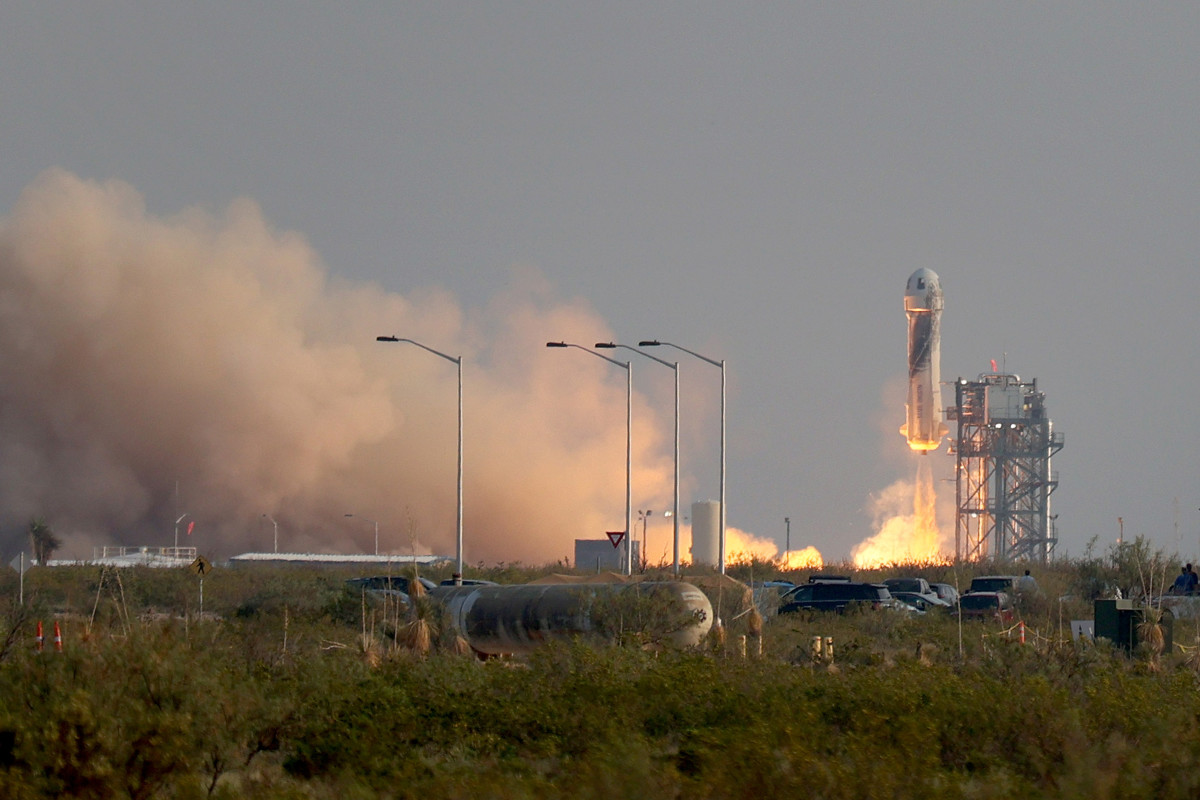
Jeff Bezos's Blue Origin on Tuesday successfully launched its New Shepard rocket for the 24th time.
The mission flew a total of 33 payloads — which came from NASA, research institutions, commercial companies and academia — into space, bringing the number of payloads carried by New Shepard rockets to more than 150.
The vessel was also carrying 38,000 postcards from students as part of Blue Origin's "Postcards to Space" program.
Related: Elon Musk goes after Biden Administration following $900 million SpaceX loss
The rocket flew for around 10 minutes before safely touching back down.
The flight marked Blue Origin's first launch since September 2022, when a similarly uncrewed rocket failed shortly after launch.
Bezos's return to space comes as the competition, namely Elon Musk's SpaceX, continues to pull ahead. SpaceX has launched close to 100 rockets throughout the year, adding thousands of satellites to its Starlink constellation and successfully working with NASA despite the ongoing midair failures of its Starship project.
Blue Origin, meanwhile, is busy developing its New Glenn rocket, a larger vessel designed to launch both payloads and people into space.
Years overdue, New Glenn was initially supposed to debut in 2020, then 2021, then 2022.
The company is now confident that it will fly its inaugural mission sometime next year, though no specific timeframe has been provided.
Related: Jeff Bezos thinks Elon Musk must be a 'very capable leader'
Blue Origin's plan to study Mars
NASA in February awarded Blue Origin a science mission to Mars, designed to study the red planet's magnetosphere. The mission will herald New Glenn into space for the first time.
Throughout its methodical construction process, Blue Origin hopes to build a rocket that will have a successful maiden voyage.
“Even though it’s our initial launch, our position isn’t to hope,” Jarrett Jones, senior vice president for the New Glenn project, said in April.
Like Musk's SpaceX, reusability is a core facet of Blue Origin's designs.
The company said in a statement that 99% of New Shepard's dry mass is reused, from the booster to its parachutes. The New Shepard flights are fueled by liquid oxygen and hydrogen, and Blue Origin said the only byproduct is water vapor with no carbon emissions.
Phil Joyce, senior vice president of the New Shepard program, said in a statement that demand for New Shepard flights "continues to grow."
"We’re looking forward to increasing our flight cadence in 2024," he said.
Contact Ian with tips via email, ian.krietzberg@thearenagroup.net, or Signal 732-804-1223.
Related: Jeff Bezos' Blue Origin is purposefully lagging behind Elon Musk's SpaceX
Get exclusive access to portfolio managers’ stock picks and proven investing strategies with Real Money Pro. Get started now.







